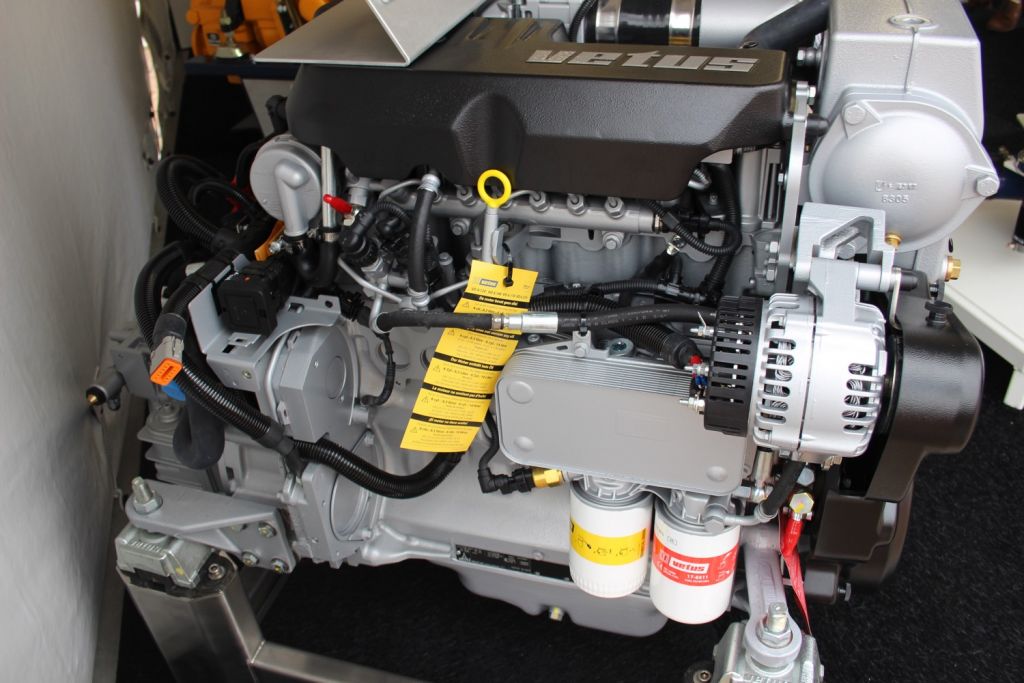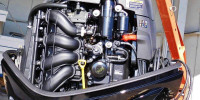How Much Does it Cost to Replace a Boat Starter?
It's Friday evening, and you got off work early to get over to the boat while your partner is meeting you with the kids and coolers. Everyone gets on board, and you get ready to cast off. You turn the key and...nothing. No engine. Just a soft clicking from down in the engine. If it turns out to be a bum starter, how much are you in for?
How Much Does it Cost to Replace a Boat Starter? Inboard engine (and generator) starters cost from $40 - over $1,000 depending on the engine. Outboard starters run from about $100 - $500. Skilled marine technicians charge from $75 - $150 per hour. Your costs will range from a couple of hundred dollars for a small outboard up to over a thousand for a large or difficult to reach inboard.
That's a broad range, but if you know what you need for your boat, then you can get a better idea of the cost. The final price depends on two things - what type of engine you have, and how hard it is to get to the starter.

On this page:
Getting a Quote - What to Look For
If your starter dies, you're in a bind. Whether it's the middle of the summer and you're losing precious boating time, or it's the end of the year and you're taking the boat to its winter spot, you need to get it fixed. How can you make sure you aren't overpaying while you try to get your boat fixed in a hurry?
The first trick to not overpaying is to get an estimate for the work. This will include any needed parts and supplies and a rough idea of how much work it will take to do the job. Even a verbal estimate is better than a blind visit, and you want to know the cost for the parts.
When you take your car in for a new starter, the shop has a book with guides for the expected hours needed to complete any task your car needs. While such books exist for the marine industry, a lot of yards and mechanics don't like to use them because boats are so variable in layout and design. So the estimate you get will be just that, a rough guideline and not an exact number like you'd get from a car dealer.
Most reliable technicians will give a realistic estimate, and if the project runs very much over that estimate, they will call you first and take the time to show you why it is running over the estimate.
Know Your Starter
It's a good idea to do your own research on parts and pricing when you get a quote. Once you identify your engine with its exact model, there are online suppliers where you can get quoted prices for most parts. If you can get a price for the parts, you will know if the quoted price you receive is reasonable.
You can often buy a part cheaper than a yard or service company will sell it to you in a job quote, but they may not want to install it. Most times, selling parts is how they make some of their money. Information on what it should cost will keep you from overpaying and may help you get a better price than quoted if you show your research and negotiate.
Location is Everything
My starter is on the port side of my engine, which is in a deeply recessed hard-to-reach spot behind the engine. Whoever replaces that starter will have to reach underneath and do much of the job by feel, working in a dimly lit area. If any of the bolts are tough to get out or get stripped, it will be a time-consuming project.
Many outboard starters are accessible by removing the cowling on the engine and can be replaced by undoing a few bolts and electrical connections.
It's important to know where your starter is and how hard it may be to get to when you are looking at time estimates to replace it.
What Can Drive up the Price?
Any boat project will have its share of unexpected difficulties, making estimating exact times for labor challenging. A few of the things that can go wrong include:
- Stuck nuts and bolts
- Stripped threads
- Snapped bolts
- Excessive corrosion in mechanical or electrical connections.
- Inaccessible bolt heads or starter
It's not unheard of for any of these complications to arise when a starter is removed from an older engine.
What Does the Starter Do?
Small engines are hand started with a pull or rope that spins the engine and starts the combustion cycle. A starter does the same thing with larger engines.
It's a small electric motor that provides a lot of torque to a geared fitting on the end. When the ignition is engaged and starter's solenoid powers up, the gearing moves and engages teeth on the engine flywheel and spins it hard enough to start the combustion cycle.
Engaging the starter when the engine's running forces the geared fitting to mesh with the gear teeth on a spinning engine. This is the source of that horrible noise you hear if you try to start a running engine, and it may damage the starter.
What Can Go Wrong with a Starter?
There are several points of failure in a starter that can leave you stuck at the dock. These include:
- Physical failure or stripping of the gears or the spring that works opposite the solenoid.
- Solenoid failure. You should hear a distinct click when the starter is engaged. If you don't hear this, it may be the solenoid.
- Motor failure. If you hear the click of the solenoid but the starter does not turn over the engine, this may be your problem.
- Electrical problems inside the starter may cause intermittent failures, shorting, or smoking.
- Starter relay failure.
Some failure types are not so severe that it destroys the starter. If you have the skill to do the job, you can get rebuild kits to fix a burned out motor, failed solenoid, malfunctioning relay, or stripped gears. A competent mechanic should be able to offer guidance on if they can repair a starter instead of replacing it.
How Do You Know it's the Starter?
Before you replace an expensive starter, it's best to make sure that it is actually broken. There are starting problems that may mimic a starter failure. Your mechanic should do these tests, but you can do them yourself before you call him to save yourself that cost.
- Battery charge. Make sure your batteries are charged. Dead or low batteries may keep the starter motor from delivering enough power to turn the engine.
- Electrical connections. Check all the electrical connections from the battery through the ignition to the starter to make sure they are all clean, tight, and uncorroded.
- Test the ignition to make sure the switch is OK.
- Make sure the emergency stop is in place! Your engine will not turn over if you don't have the kill switch in place.
Can I Make it Less Expensive?
Hiring a professional to replace your starter can be an expensive proposition on larger boats and boats where the starter is hard to reach. Steps that might reduce the cost of the replacement include:
- Make sure any technician diagnoses the problem to be sure it is the starter that needs replacement. If you hire someone to just "put in a new starter," some mechanics will do exactly what you ask for without checking if it's necessary.
- Consider doing it yourself. It's not a complex job and doesn't require special tools in most cases.
- Consider a rebuild instead of a replacement. Don't forget the cost of labor, but you may find someone to rebuild the starter for you for a fraction of the cost of a new one, even with the labor.
- Consider buying a rebuilt starter instead of a new one for a replacement. A professionally rebuilt starter should work as well as a new one.
- Alternative brand starters may work for your engine. Sufficient torque and matching gearing is what it requires, not the brand label of your engine manufacturer. There are third-party starters on the market that may work as well as an OEM starter at a much lower cost. Take care that the bolt holes line up, though; a starter that delivers enough torque but can't be screwed to the engine isn't much use.
- Do your own basic diagnosis before you call in a professional so you don't waste money on something that isn't a problem. You need not do an exhaustive check, but a few simple ones like the kill switch and batteries can save you a service call.
Did you find the answer to your specific question?
👍 3 👎 2


Comments
Eve Mitchell
Thanks for mentioning that the location of the starter is crucial. My husband and I want to take our boat out for the first time this summer, and I think that the engine needs to be replaced. I’ll have to find a boat mechanic to work with this week. https://reliablemarineservice.com/repowers/
Eve Mitchell
It’s good to know that the location of your starter is crucial. I would love to get a new starter, engine, and fuel tank for my boat this year since it’s over 15 years old. I want to make sure my boat is running good as new, so I’ll have to reach out to a boat mechanic. https://www.mycarrenterprise.com/boat-fuel-tank
Leave a comment